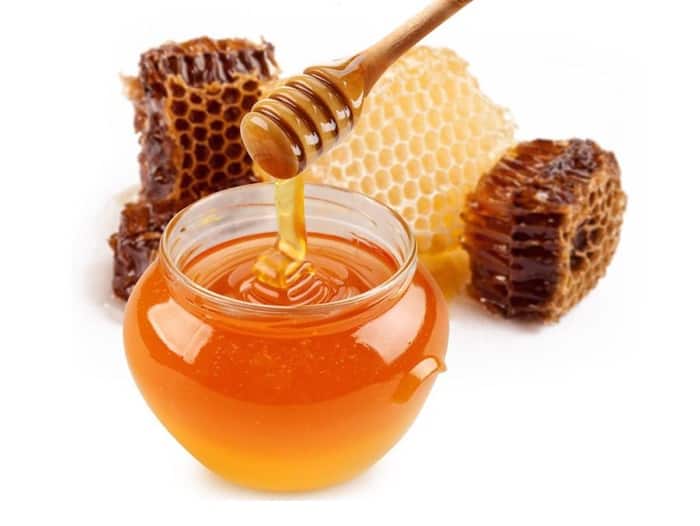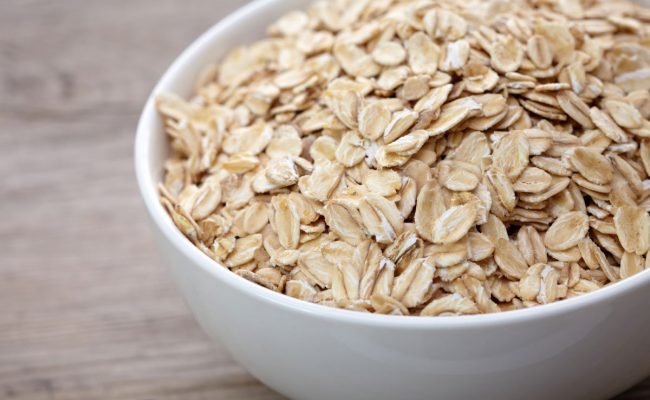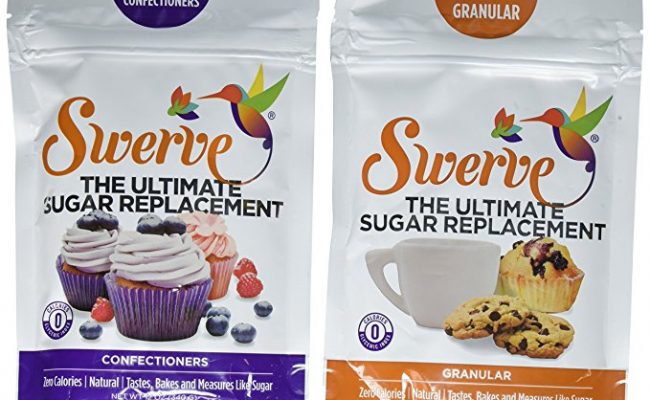
Honey has been used to treat various ailments for centuries. Is the buzz around the health benefits of honey valid? Scientific research has shown honey may provide some health benefits including: antibacterial, wound healing properties, aiding relief for sore throat/cough and more research is needed in honey’s role on heart disease, fighting cancer cells and diabetes risk.
Research around specific types of honeys is also relatively new in discovering specific health benefits of honey from specific regions or flowers.
In particular, manuka honey has received attention and research as a special type of honey that may offer some health advantages.
What makes manuka honey special?
Manuka honey is specifically from New Zeeland. Manuka honey is from bees that solely rely on the manuka bush (or called tea tree) to make honey, nectar and pollen.
Researchers suggest manuka honey contains special compounds from the manuka flowers that may offer additional health benefit.
Research is ongoing for the health benefits of manuka honey, but so far these are research backed ways manuka honey may benefit your health.
1. Antibacterial Health Benefits
All honey can provide some antibacterial health benefit, but the degree of antibacterial properties can vary depending on the type of honey and how it’s harvested (1).
Most of the antibacterial property from honey is associated with honey’s production of hydrogen peroxide. This acts as a means to kill bacteria.
Manuka honey has some additional properties that may provide even more antibacterial properties. Methylglyoxal (MG) is one property in manuka flowers that is in manuka honey that offers additional antibacterial benefit.
Dihydroxyacetone (DHA) (2) from the nectar of manuka flowers helps DHA convert to MG in manuka honey.
2. Rich in Antioxidants
A 2005 study (3) compared the antioxidant activity of 4 different honeys including manuka honey.
Researchers found manuka and buckwheat honey had significantly higher antioxidant activity compared to 2 other types of honey.
In addition, only manuka honey had specific activity for superoxide anion radicals. Therefore, while all honey may provide varying amounts of antioxidants, manuka honey has been shown to provide a high level of antioxidant activity and specific activity not found in other tested honey samples.
3. Wound healing
Both honey and sugar can be used as a treatment for dressing wounds and ulcers. Honey has the ability to draw moisture from a wound and provide an antibacterial protection for healing wounds.
Because manuka honey has higher amounts of MG, it can provide an additional antibacterial benefit for healing skin wounds.
One study (4) found the non-peroxide antibacterial activity from manuka honey inhibited growth of Staphylococcus aureus for up to 8 hours.
This suggests manuka honey may be beneficial for lowering risk for infection in wounds from bacteria Staph aureus and possibly other bacteria.
In fact, founder of Fresh Med NYC Dr. Robert Graham (5) suggests in a 2018 Health article manuka honey may also lower risk for developing an infection from potentially dangerous Methicillin-resistant Staphylococcus aureus (MRSA).
MRSA is resistant to common antibiotics, so finding alternatives to treating antibiotic resistant bacteria strains is important for keeping these dangerous bacteria under control.
In a 2005 case study (6), the use of manuka honey was used on eight cases of leg ulceration. The wounds were dressed weekly with manuka honey.
Researchers found after 4 weeks of treatment all eight cases were significantly improved in wound size, pain and odor. More research is needed to clarify the relationship between manuka honey and treatment of ulcers.
An important reminder when talking about using manuka honey for wound healing is this refers to medical grade manuka honey.
This type of honey is different than the honey you may purchase for consumption from the store. The grading system for manuka honey is the Unique Manuka Factor (UMF) scale.
Manuka honey with a UMF of 10 or higher is considered medical grade. Do not put honey on a wound or consume for any ailment before consulting with your doctor first.
4. Oral health: Can prevent gum disease and plaque
Manuka honey, like all other honeys, is a source of sugar. Eating sugary foods and drinks are associated with increasing risk for cavities and other negative teeth disorders.
So, it may seem counterintuitive manuka honey may actually benefit oral health. Some studies have shown it may be beneficial for preventing gum disease gingivitis and plaque buildup.
A 2004 study (7) investigated whether manuka honey with a UMF 15 level could be used to reduce plaque buildup and clinical gingivitis.
Participants either chewed a manuka honey leather or sugarless gum for 10 minutes after each meal for 21 days.
After 21 days, researchers found significant improvements in the participants in the manuka honey group for lowered plaque buildup and less gum bleeding. No significant changes were in the gum group.
The results of this study do not suggest eating high amounts of any honey will provide oral health benefit.
The honey in this study was manuka honey with UMF 15; consuming other honey may not provide these benefits. More research is needed.
5. Relief from some side effects of chemotherapy
According to WebMD, a committee from the National Cancer Institute suggested manuka honey may be beneficial for reducing inflammation of the esophagus associated with chemotherapy.
Manuka honey may provide relief from other side effects of chemotherapy; more research is needed. Before consuming any type of honey while on chemotherapy, consult your physician first.
Manuka honey and health
Manuka honey has been shown from research that is may offer health benefits more than other types of honey. Keep in mind most research studies use medicinal grade manuka honey which may not be the same as what is available for consumption from a store.
Check the UMF rating of manuka honey to ensure authenticity and potency. Generally speaking, manuka honey with a UMF of at least 10 is considered therapeutic.
Before applying manuka honey or ingesting it, consult your doctor. Consuming manuka honey may interfere with certain medications.
Also note consuming manuka honey still provides a source of simple carbohydrates and should be eaten in moderation of a healthy balanced diet.










